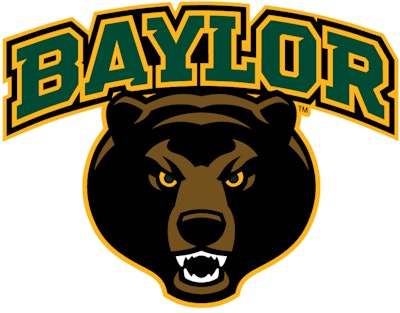
Although Baylor University's overall handling of sexual harassment complaints improved after a 2016 scandal rocked its athletic department, the school continued to have problems with delays in its response to such complaints and improperly handled some cases against athletes, according to a federal report released Monday.
According to ESPN investigative reporter Paul Lavigne, the Office for Civil Rights within the U.S. Department of Education on Tuesday issued the results of its eight-year investigation, which examined Baylor's behavior from 2014 to 2020. The case stemmed from a complaint filed by the university's former Title IX coordinator Patty Crawford in September 2016, shortly before she left the school.
ESPN obtained a copy of the documents, which were first posted online Monday.
"While OCR recognizes that the University has made significant strides in improving its Title IX process, OCR's investigation revealed violations of Title IX as well as Title IX compliance concerns," the report stated.
"The failure to immediately report sexual harassment to the Title IX Coordinator prevented the Title IX Coordinator from providing a prompt and equitable response as required by Title IX. Moreover, involvement of the Athletics Department in the investigative or fact-gathering process for athletes introduced a conflict of interest into the University's Title IX process, compromising the legitimacy of some Title IX investigations."
The university issued a statement in response Monday. "With two limited exceptions, OCR's findings are not reflective of Baylor's current Title IX program," the statement read, "but instead represent a backwards look at the time frame between the 2014-2015 and 2019-2020 academic years."
According to Lavigne, the statement noted that the OCR report "echoed a number of the findings that Baylor proactively identified and shared publicly in May 2016" and the remaining findings were limited due to the seven-year review period, which ended in 2020, "and all have long since been remedied."
The DOE report focuses heavily on how the university performed after it vowed to improve its handling of sexual harassment reports in the wake of an internal review eight years ago.
That review, led by law firm Pepper Hamilton, found multiple failures in how the university treated students who reported sexual assaults and related offenses, especially when they involved athletes, most notably those in the football program. It led to the firing of football coach Art Briles in May 2016, as well as the suspension of athletic director Ian McCaw and demotion of Baylor president Ken Starr, who both later left the university, ESPN reported. Starr died in 2022.
The government report noted that almost half of the 49 complaints filed against athletes from January 2017 to September 2020 were not investigated and were instead closed because the person who filed the complaint declined the full Title IX process. "Only three Title IX complaints against athletes during the subject time period were fully investigated by the University," the report stated.
Of the 1,578 total sexual harassment complaints filed during the same time frame, 6% were fully investigated and 34% were closed as "declined process." The report noted a concern over whether the university was monitoring the complainants' reasons for declining the Title IX process and taking steps to make sure students and others were not discouraged from filing complaints.
In one example cited within the report, a woman reported in February 2019 that an athlete had sexually assaulted her, but she was reluctant to come forward because he was a "student athlete 'at the peak of his career,'" and she "believed the University would show preference to the respondent." She declined to move forward, even after school officials told her in September 2019 that another Title IX report had been filed against the same athlete alleging sexual assault, the report stated.
The report also referenced a case involving football players in November 2017 in which "documentation confirmed that the Athletics Department engaged in discussions with accused football players prior to reporting an alleged sexual assault to the Title IX office."
That case was handled by Baylor's then-football coach Matt Rhule, who at the time said, "I don't know much about the case, and I think that's really a good thing, because I probably really shouldn't know much about it as the football coach." A Baylor official said Monday that the athletic department turned over the case to the Title IX office "within a matter of hours."
Baylor's Title IX investigators ultimately found three football players responsible for violating the school's sexual misconduct policies, and they were expelled.
In referencing athlete complaints, investigators pointed out that the school also denied accused athletes an equitable Title IX process by suspending them prior to a finding of responsibility for sexual harassment, Lavigne reported. It noted that all parties were affected by "significant unexplained delays" in the handling of complaints. In the 2017 case, it took 351 days to resolve complaints against three of the accused students and 447 days for the fourth.
The OCR's report is the last major adjudication of the Baylor scandal, which prompted multiple lawsuits and action by the Big 12 conference, the NCAA and other regulatory agencies, according to Lavigne. Last year, a federal jury found Baylor responsible for Title IX violations. Federal officials also fined Baylor more than $400,000 in 2020 for failing to disclose reports of assaults in its annual crime report under the Jeanne Clery Act.





































